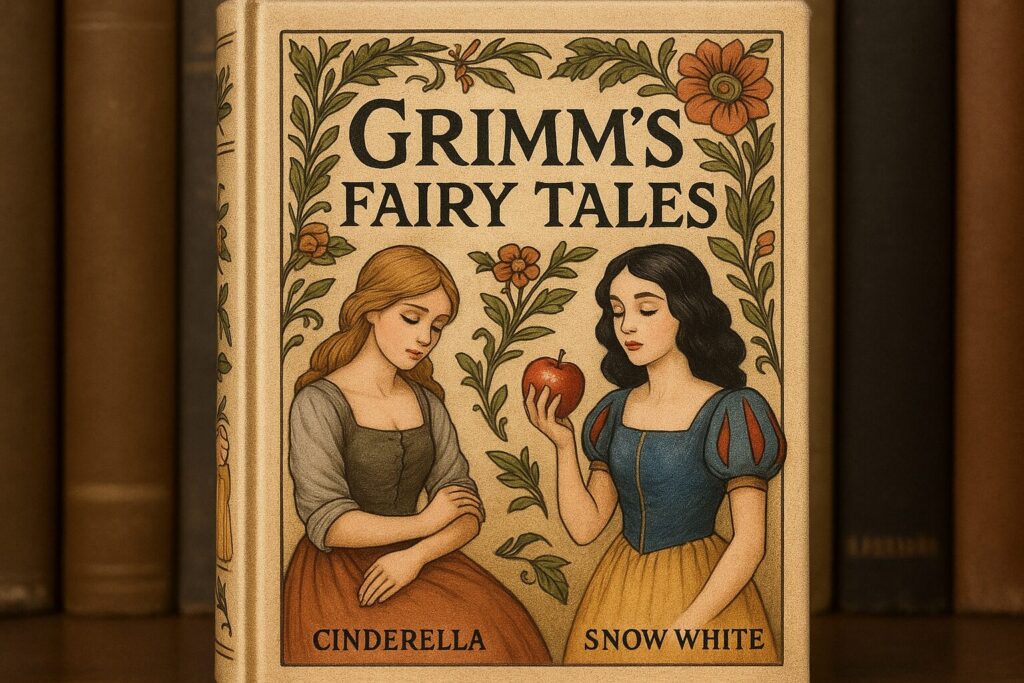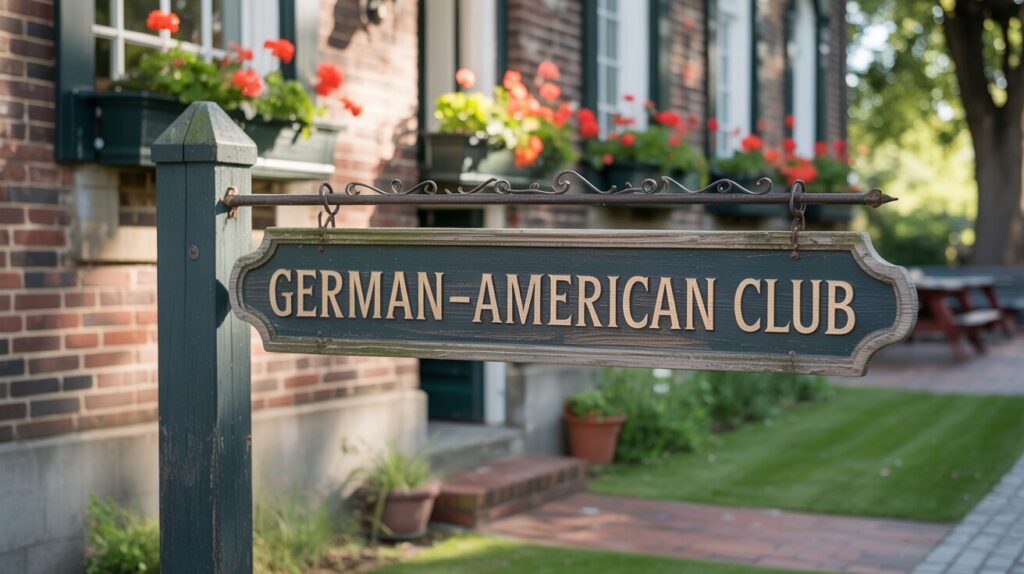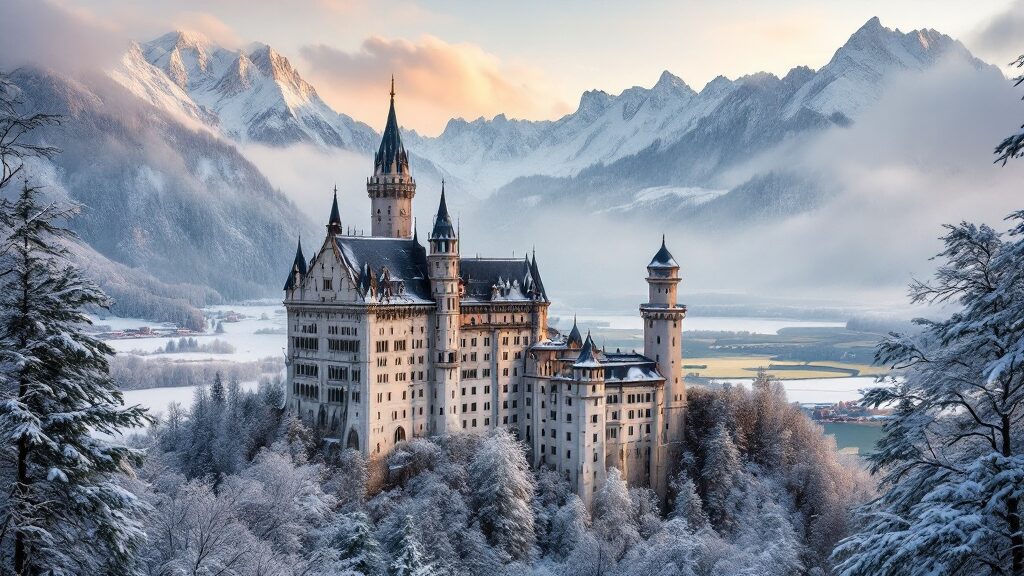German Storytelling: More Than Just Fairy Tales!
Ever wondered where some of the most famous stories in the world come from? Well, a lot of them have roots in Germany! German storytelling has a super cool history, and it’s influenced everything from the books we read as kids to the movies and TV shows we binge-watch today. Let’s dive into what makes German stories so special, who the big players are, and why they still matter.
The Brothers Grimm: Fairy Tale Superstars
You can’t talk about German storytelling without mentioning the Brothers Grimm. Seriously, these guys are legends! Jacob and Wilhelm Grimm were like, the ultimate researchers of their time. They were fascinated by old German folktales and made it their mission to write them all down. Think of them as the original story collectors! Their book, Grimms’ Fairy Tales, became a total classic. It’s basically the foundation of children’s literature and a treasure trove of German culture.



Why are the Brothers Grimm such a Big Deal?
- They Saved Stories From Disappearing: Imagine all those awesome tales just vanishing over time! The Brothers Grimm preserved them for future generations. Talk about a legacy!
- Everyone Can Relate to Their Stories: Good vs. evil, love, loss, second chances – the themes in their stories are timeless. No matter who you are or where you’re from, you can probably find something to connect with.
- They Went Global: Grimms’ Fairy Tales has been translated into so many different languages! It introduced German culture to the whole world, shaped childhoods, and inspired countless movies, books, and art.
Classic Grimm Tales You Probably Know:
- Cinderella (Aschenputtel): The ultimate underdog story! Kindness wins, and bad guys get what they deserve.
- Snow White (Schneewittchen): Beauty, jealousy, and the power of good triumphing over evil. A real nail-biter!
- Hansel and Gretel (Hänsel und Gretel): A slightly scary, but important, reminder to be careful and resourceful when facing tough situations.
- Rapunzel: A story about being trapped, finding hope, and the power of love to set you free.
These are just a few of the amazing stories the Brothers Grimm collected. They’re still being retold and reimagined today, which shows just how powerful and timeless they are!
Beyond the Fairy Tale Forest: Other German Storytellers
Okay, so the Brothers Grimm are awesome, but German storytelling is way more than just fairy tales. Over the years, German writers have created tons of incredible novels, poems, and plays that have captivated audiences and tackled some pretty deep topics.
Meet Some Literary Giants:
- Johann Wolfgang von Goethe: Think of him as the OG German author. His novel The Sorrows of Young Werther and play Faust are classics for a reason. They explore big themes like love, ambition, and what it means to be human.
- Hermann Hesse: If you’re into soul-searching and finding yourself, check out Hesse’s novels Siddhartha and Steppenwolf. They’re all about spirituality, self-discovery, and figuring out your place in the world.
- Thomas Mann: This guy won a Nobel Prize! His novels, like The Magic Mountain and Death in Venice, dive into art, culture, and the complexities of the human mind.
These authors are just the tip of the iceberg. They’ve all contributed to a rich and diverse world of German stories, offering different perspectives and exploring themes that still resonate with readers today.
German Stories on the Big (and Small) Screen
German storytelling isn’t just limited to books; it’s also made a big splash in movies and TV. From super old-school, artsy films to modern dramas and comedies, German filmmakers have always been pushing boundaries and telling compelling stories.



Cool Film Movements and Must-See Movies:
- German Expressionism: This early film movement was all about crazy visuals and exploring the dark side of the human psyche. Check out The Cabinet of Dr. Caligari and Nosferatu for a taste.
- New German Cinema: In the 60s and 70s, a new wave of filmmakers challenged the norm and tackled social and political issues head-on. Look up directors like Rainer Werner Fassbinder and Werner Herzog.
- Contemporary German Cinema: German movies are still killing it today! Films like The Lives of Others and Run Lola Run have won awards and fans all over the world.
German TV is Having a Moment:
German TV shows are also making waves internationally. Series like Dark and Deutschland 83 have captivated audiences with their complex plots and unique takes on history and culture.
Why German Storytelling Still Matters
From the classic fairy tales of the Brothers Grimm to the awesome movies and TV shows of today, German storytelling has had a huge impact on the world. The themes in these stories are universal, and they continue to inspire artists, writers, and filmmakers everywhere.
For people with German heritage, these stories offer a connection to their roots and a reminder of the rich cultural traditions that have shaped their identity. For Germans, it’s a source of national pride and a testament to the power of storytelling. And for everyone else, German storytelling offers a glimpse into a fascinating culture and a reminder of the shared human experiences that connect us all.
So, whether you’re discovering the magic of Snow White for the first time or getting hooked on a German TV series, there’s a whole world of German storytelling out there waiting to be explored!
FAQ
I’m taking a German Lit class, and I’m a little overwhelmed. Where’s a good place to start with German storytelling?
Hey, no worries! German storytelling has a rich history. A great starting point would be the Brothers Grimm fairy tales. They’re super famous and relatively short, so they’re easy to digest. Plus, many modern stories and films borrow elements from them, so you’ll recognize familiar themes. After that, maybe check out some classic Arthurian legends that originated in Germany, like Parzival!
Are there any German movies or TV shows I might already know that are based on German stories or legends?
Definitely! While not directly based, a lot of fantasy films and shows draw inspiration from German folklore and mythology. Think about shows with dark forests, magical creatures, and strong mythical themes. For something more directly related, look into adaptations of the Nibelungenlied (The Song of the Nibelungs) – there are several film versions out there. Also, keep an eye out for films that reimagine Grimm’s fairy tales in modern settings!
I’m on a tight budget. Where can I find some of these stories without breaking the bank?
Totally understand! Luckily, many of the classic German stories, especially the Grimm’s fairy tales, are in the public domain. That means you can find them for free online on sites like Project Gutenberg. Your local library is also a fantastic resource – they’ll likely have collections of German literature in translation, as well as film and TV resources. Don’t forget to check out streaming services too; they often have a selection of international films and shows.
German stories sound kind of dark and intense. Is there anything lighter or more humorous in German storytelling?
Absolutely! While some German stories can be quite serious, there’s definitely a lighter side too. Look into the works of Wilhelm Busch, who created Max and Moritz, a classic comic strip about two mischievous boys. It’s a bit older, but the humor still holds up. Also, many modern German comedies incorporate elements of satire and social commentary, which can be really funny and thought-provoking.
I’m interested in learning more about the Arthurian legends that originated in Germany. Where should I start?
That’s awesome! A great place to begin is with Wolfram von Eschenbach’s Parzival. It’s a medieval German romance that offers a unique perspective on the Arthurian legend, focusing on the quest for the Holy Grail. It’s a longer read, but definitely worth it if you’re interested in the topic. You can usually find translated versions in university libraries or online bookstores. Good luck exploring the world of Arthurian legends!




